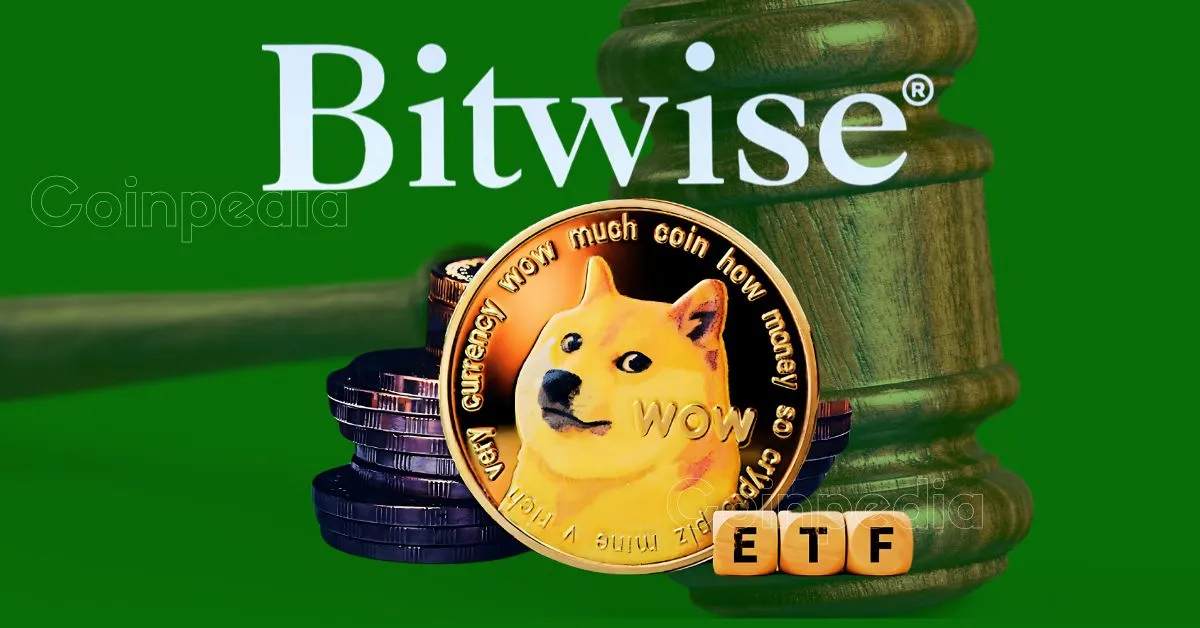The Emerging Outlook for Dogecoin as Bitwise Advances Its Spot ETF Filing
Dogecoin, initially conceived as a playful internet meme, has evolved into a cryptocurrency with significant market potential. The recent amendments to Bitwise Asset Management’s S-1 filings for a spot Dogecoin Exchange-Traded Fund (ETF) with the U.S. Securities and Exchange Commission (SEC) have reignited optimism within the crypto community. This development suggests that a regulated investment product for Dogecoin may soon become a reality, aligning with broader trends in the approval of spot crypto ETFs in the United States.
Understanding the Importance of Bitwise’s Amended S-1 Filing
Bitwise’s amended S-1 filings for the Dogecoin ETF introduce a critical feature: in-kind creations and redemptions. This mechanism, already adopted by recent spot ETFs for cryptocurrencies like Bitcoin, allows authorized participants to exchange underlying assets for ETF shares directly and vice versa. The SEC favors this method because it minimizes pricing inefficiencies and potential manipulation, thereby enhancing investor protection.
Previously, the SEC delayed its decision on the Dogecoin ETF, citing concerns related to market manipulation and investor protection risks. Bitwise’s updated filing not only addresses these technical and structural aspects but also demonstrates a proactive approach to regulatory hurdles. By aligning with SEC preferences, Bitwise has significantly improved the chances of approval for its Dogecoin ETF.
The Competitive Landscape: Dogecoin ETFs Beyond Bitwise
Bitwise is not the only firm pursuing a Dogecoin spot ETF in the U.S. market. Other companies, such as 21Shares and Grayscale, have their own Dogecoin-related investment vehicles in various stages of regulatory consideration. Grayscale’s Dogecoin trust, for example, charges a higher management fee (around 2.5%) but offers an alternative investment structure. The presence of multiple issuers in the market parallels the competitive landscape seen with Bitcoin and Ethereum ETFs, ultimately benefiting investors with a range of choices and competitive offerings.
With Bitwise’s amendments closely aligning with ongoing SEC-backed spot ETF approvals, the likelihood of regulatory approval appears increasingly favorable. Analysts estimate that the probability of Dogecoin ETF approval is now around 90%, reflecting optimism driven by more transparent and SEC-friendly product designs.
Market Reaction and Dogecoin Price Predictions
Despite the positive regulatory signals, Dogecoin’s price has remained relatively subdued in the short term. Trading data shows that DOGE experienced a slight decline of roughly 2-5% amid the announcements, hovering near prices in the low $0.30 range during mid-2025. Trading volumes have also dipped, reflecting mixed sentiment or perhaps the typical ETF news lag turning into actual price action.
However, many market speculators predict strong potential growth if a spot Dogecoin ETF comes to fruition. Drawing parallels with previous market cycles, one notable trader project predicted that Dogecoin could surge from around $0.42 to as high as $4 over the medium term. Some bullish analysts forecast that Dogecoin could hit the symbolic $1 mark soon, particularly if the ETF approval catalyzes institutional interest and retail investor confidence.
This sentiment is amplified by the general bullishness in the broader crypto ETF market, where spot Bitcoin ETFs have amassed nearly $50 billion in assets since early 2025, signaling strong institutional appetite for regulated crypto exposure.
Broader Implications for Institutional Investment and Retail Participation
The approval of a Bitwise Dogecoin spot ETF would represent a watershed moment for crypto asset managers and investors alike. For institutions, it offers a regulated and transparent channel to access Dogecoin, a market that has historically been perceived as volatile and speculative. ETFs provide benefits such as ease of purchase through traditional brokerage accounts, lower operational overhead compared to direct crypto custody, and potentially enhanced liquidity.
For retail investors, a Dogecoin ETF reduces the technical and security barriers associated with direct crypto investment. It eliminates the need for managing wallets and private keys, making Dogecoin more accessible within conventional investment portfolios and retirement accounts.
Furthermore, because Bitwise’s ETF would be backed by Coinbase Custody, a major cryptocurrency custody provider, confidence in the security and safekeeping of underlying assets could boost investor trust.
SEC’s Risk Considerations and Regulatory Timeline
The SEC’s cautious stance toward crypto ETFs, especially ones tied to altcoins like Dogecoin, stems from concerns over market integrity, price manipulation, and investor protection. The Dogecoin ETF delay announced in June 2025 highlighted these concerns.
Bitwise’s filings respond with technical improvements designed to mitigate these risks, such as incorporating in-kind redemptions and aligning with established ETF structures for digital assets. A key aspect now is the ongoing correspondence and negotiation between Bitwise and the SEC, which appears productive given the recent amendments and public commentary phases.
Starting with the initial filing in March 2025, the SEC’s decision window for the ETF is expected to conclude by January 2026, allowing for roughly a 240-day review period. The anticipation is that improved filings and growing institutional endorsement will help expedite the approval process.
Conclusion: A Turning Point for Dogecoin and Crypto Investment
The latest developments surrounding Bitwise’s amended filings for a spot Dogecoin ETF mark a potential turning point in how this once niche cryptocurrency integrates with mainstream finance. With the industry watching closely, the introduction of an ETF backed by a reputable custodian and structured to address SEC concerns could unlock significant investment inflows.
Dogecoin’s journey from internet meme to a viable financial asset reflects broader maturation within the crypto ecosystem, driven by regulatory engagement and evolving investor needs. Should the ETF gain approval, it stands to not only propel Dogecoin’s market value significantly but also redefine investor access and institutional participation in the memecoin segment.
This progress underscores the dynamic nature of crypto markets—where regulatory dialogue, asset management innovation, and community enthusiasm converge to shape future possibilities. Whether Dogecoin hits $1 or more remains to be seen, but the path toward that milestone now appears clearer than ever.





